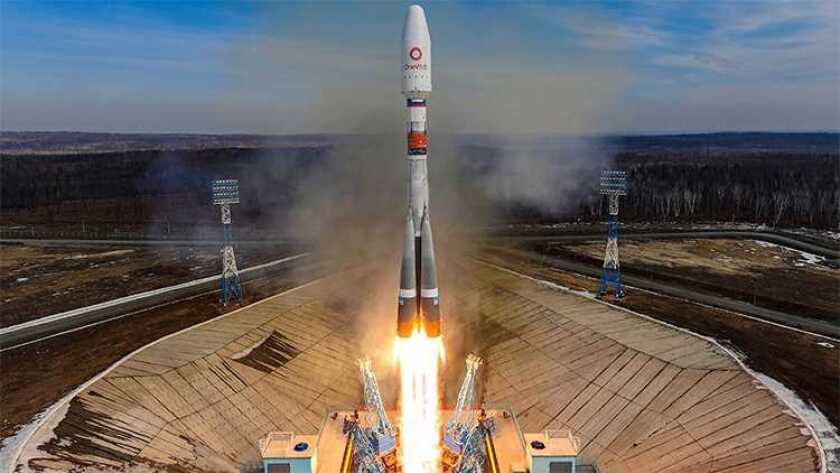The low Earth orbit (LEO) company, which is still 220 satellites short of its target 648, is teaming with the University of Surrey and IT services company CGI to test the integration of satellite communications and mobile 5G networks.
OneWeb CTO Massimiliano Ladovaz said: “Creating an interoperable low Earth orbit satellite communications and mobile 5G network is critical to achieve a ubiquitous, affordable, fast and consistent connectivity experience to businesses, users and governments.”
In July Eutelsat, which has a fleet of geostationary satellites, announced an agreed takeover of OneWeb in a deal that values the LEO company at US$3.4 billion.
OneWeb’s launch programme was brought a halt by Russia’s war on Ukraine: the company used a Russian launcher and Russian launch sites, including Vostochny in the Russian far east (pictured).
Ladovaz said: “This pilot is an important step in our mission to connect people everywhere, on land, at sea and in the air, providing the opportunity for people to realise their full potential even in the remotest reaches of the planet.”
OneWeb’s partner in the project is the 5G Innovation Centre (5GIC) at the University of Surrey, which is in Guildford, south-west of London.
The project will test the use of OneWeb’s low-latency satellite network capability to transport 5G services in backhaul, and to backhaul from a mobile 5G base station to a 5G core network.
Professor Rahim Tafazolli, head of the Institute for Communications at the University of Surrey, said: “Satellite systems are key enablers for 5G services and they will become increasingly integrated with communications networks as we progress beyond 5G towards 6G in solving cost-effectively the societal challenge of the digital divide.”
At the other partner, CGI, Shaun Stretton, senior VP for space control and information solutions, said: “Fully integrated 5G hybrid networks bring the promise of ubiquitous, seamless and high-speed connectivity to us all. … At CGI we have been leading the way in making these complex integrated networks a reality and we are very much looking forward to working with our world class partners to further address these challenges so that we can bring these game changing capabilities to market.”






